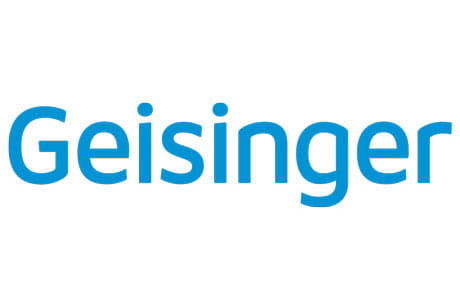Geisinger awarded $8.5 million to study genetics of mental health
Geisinger one of 15 sites working to standardize collection and measurement of data on rare genetic disorders
Geisinger was awarded the grant with the University of Washington in Seattle and Washington University in St. Louis. The project is one of five funded through the National Institute of Mental Health’s newly established Mental Health Rare Genetic Disease Network (MHRGDN), which includes researchers at 15 sites across the United States. Geisinger’s grant is co-funded by the Eunice Kennedy Shriver National Institute for Child Health and Human Development.
Geisinger’s primary investigators are Christa L. Martin, Ph.D., associate chief scientific officer and director of Geisinger’s Autism & Developmental Medicine Institute, and David H. Ledbetter, Ph.D., Geisinger’s executive vice president and chief scientific officer.
Researchers from the 15 sites in the MHRGDN network will recruit patients with known genetic causes of neuropsychiatric disorders. They will then conduct in-depth genomic and clinical assessments of patients and their family members to explore the impact of genetics on neuropsychiatric disorders. The standardized data will be made available to research facilities throughout the country through the National Institute of Mental Health to accelerate further research.
The main genetic changes to be studied are copy number variants (CNVs) of 1q21.1, 16p11.2, 15q13.3, 22q11.2, and those involving the CHD8 gene.
“Our understanding of the genetic causes of neuropsychiatric disorders is growing every day, but we still have a lot to learn,” said Dr. Martin. “We can now identify a genetic cause in up to 40 percent of children with neuropsychiatric disorders. This study will gather detailed descriptions of the clinical symptoms of these individuals to discover how to improve their medical care and outcomes.”
“This initiative allows Geisinger patients and their families to be part of something significant beyond our health system,” said Dr. Ledbetter. “Research institutions across the U.S. have been collecting genetic data for many years, while discussing ways to streamline the process. Through this project, we will begin to harmonize our collection of this data, which will ultimately improve the clinical care we provide to our patients.”
About Geisinger
Geisinger is among the nation’s leading providers of value-based care, serving 1.2 million people in urban and rural communities across Pennsylvania. Founded in 1915 by philanthropist Abigail Geisinger, the non-profit system generates $10 billion in annual revenues across 134 care sites - including 10 hospital campuses, and Geisinger Health Plan, with 600,000 members in commercial and government plans. The Geisinger College of Health Sciences educates more than 5,000 medical professionals annually and conducts more than 1,400 clinical research studies. With 26,000 employees, including 1,600 employed physicians, Geisinger is among Pennsylvania’s largest employers with an estimated economic impact of $14 billion to the state’s economy. On March 31, 2024, Geisinger became the first member of Risant Health, a new nonprofit charitable organization created to expand and accelerate value-based care across the country. Learn more at geisinger.org or connect with us on Facebook, Instagram, LinkedIn and X.

For media inquiries:
Ashley Andyshak Hayes
Marketing Strategist
Marketing & Communications
570-271-8081
arandyshakhayes@geisinger.edu
